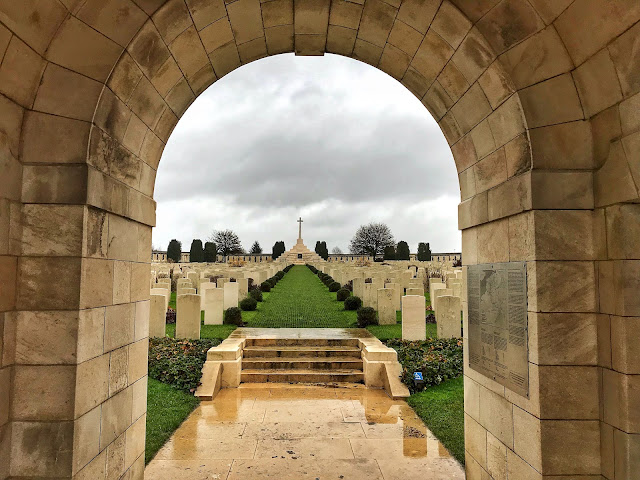The Miracle of Morale
| Rev TW Pym (IWM HU117270) |
It was, however, to most men a subconscious phenomenon and one which was not directly connected to religion. Pym wrote that 'the unconsciousness of it is the really heroic thing' and if you'd asked a random sample of soldiers why they felt optimistic in the trenches, it is unlikely any of them could have given a precise answer. As Pym was a man of faith, he saw such optimism as the guiding hand of God, and this was a view supported by Field Marshall Douglas Haig, himself a Presbyterian, who greatly valued the chaplains in their dual role of servicing faith and morale.
This guidance of faith could rarely be enunciated, especially by the men in the trenches, with Pym noting that many soldiers who were religious found it nonetheless 'difficult to pray' while serving in such suffering. He summarised the men's quandary by questioning 'how can a man thank God that he has been spared while his best pal has been taken?'. With difficulties like this it is miraculous that morale was maintained as well as it was.
 |
| 'Church Service before Battle', Daily Mail postcard, c. 1916-1918 |
Of course, it cannot be known how many. The men may have appreciated the patriotic hymns and motivational preaching of the chaplains at compulsory parade services, but there is no way to quantify their true impact on morale. To the Rev Pym the miracle of 'cheerful persistence' was part of the beauty of God-given human nature. While a chaplain could help, he saw morale as reliant on the 'natural goodness' that was part of the 'natural religion' of mankind. He was optimistic that positivity was intrinsic and after the trials of war, morale could be enduring. Given that morale did sustain throughout the war, there must have been some truth to Pym's words.
Kathryn
Papers from Picardy was written by the Chaplains Thomas W Pym and Geoffrey Gordon while on active service and published in 1917.


No comments: